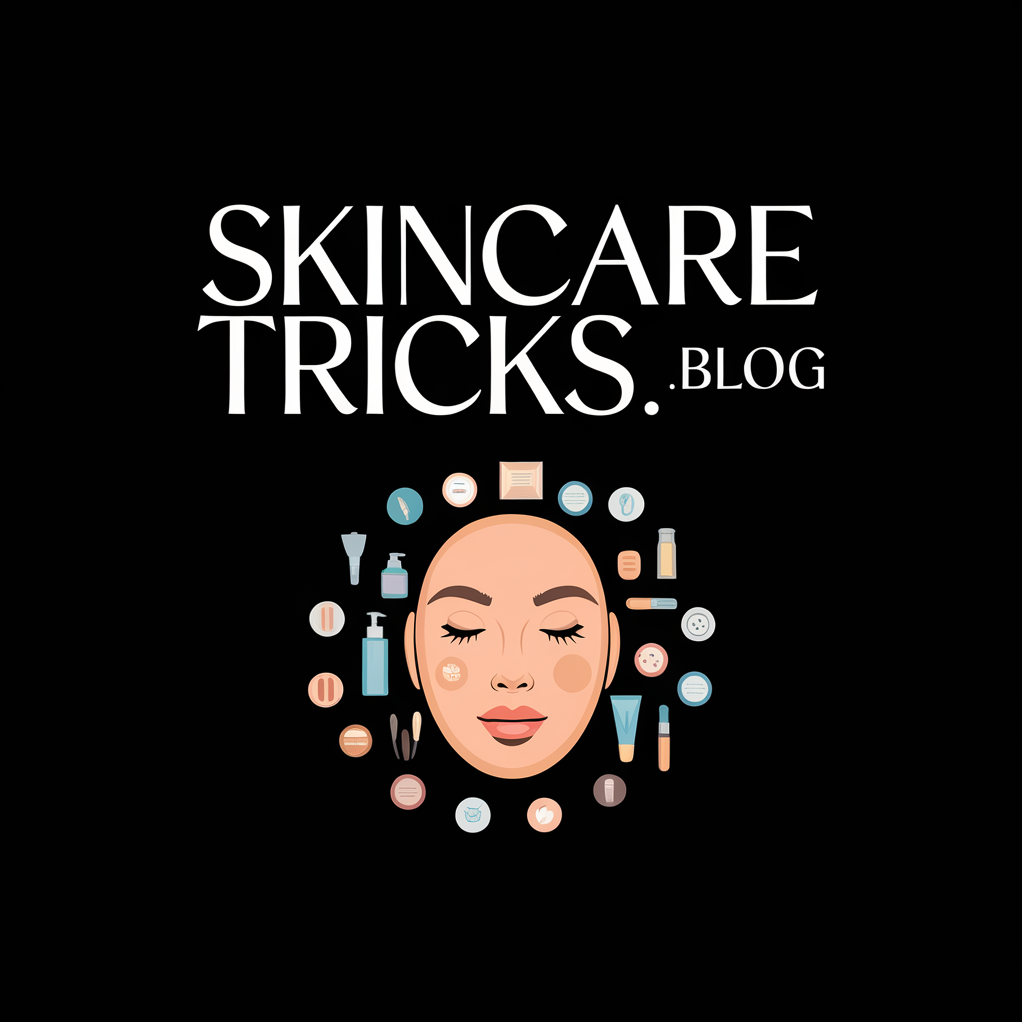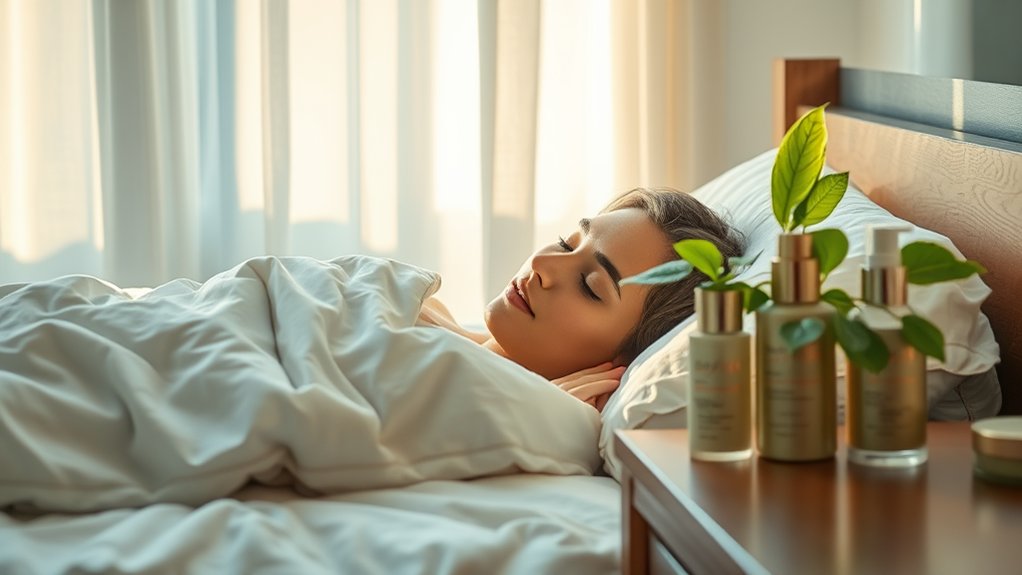Why Beauty Sleep Isn’t a Myth-The Skin Benefits You Didn’t Know
You might think beauty sleep is just a saying, but research shows it plays a crucial role in skin health. While you rest, your body engages in essential processes like collagen production and inflammation reduction. Poor sleep can elevate cortisol levels, potentially worsening skin issues. Understanding these connections could transform how you approach your nightly routine. What specific changes can you make to enhance your skin’s condition while you sleep?
The Science of Sleep and Skin Regeneration
When you sleep, your body doesn’t just rest; it actively repairs itself, with significant implications for your skin’s health.
During sleep, your skin undergoes vital processes such as cell turnover and regeneration. This natural repair cycle enhances moisture retention and promotes a clearer complexion, making effective sleep skincare crucial.
Hormones like melatonin and growth hormone peak, further supporting skin vitality. Additionally, your body reduces cortisol levels, which helps diminish inflammation, acne, and other skin conditions. Sleep is crucial for skin repair and rejuvenation, which underscores the importance of prioritizing quality sleep for optimal skin health.
Prioritizing quality sleep won’t only improve your overall wellbeing but also significantly elevate your skin’s resilience and appearance.
How Sleep Affects Collagen Production
Your sleep cycle plays a crucial role in collagen production, as different stages of sleep influence skin repair processes.
During deep sleep, hormone levels rise, promoting the synthesis of collagen and enhancing skin elasticity. Hormonal balance shifts also support skin renewal, contributing to a refreshed appearance by morning.
If you’re skimping on sleep, you might be hindering your body’s ability to maintain healthy skin.
Sleep Cycle and Collagen
As you enter deeper stages of sleep, your body initiates crucial processes that promote collagen production, essential for maintaining skin elasticity and reducing signs of aging.
During these restorative phases, particularly slow-wave sleep, collagen synthesis accelerates, repairing damage from environmental stressors and UV exposure. Your skin’s temperature drops, optimizing blood flow and nutrient delivery to its layers, enhancing collagen’s effectiveness.
This cycle is further amplified by the release of growth hormone, which rejuvenates skin cells. If you consistently disrupt your sleep cycle, you impair this vital restorative process, leading to dullness and increased wrinkle formation over time.
Prioritize quality sleep for optimal skin health.
Hormones and Skin Repair
While many factors influence skin health, hormones play a pivotal role in collagen production during sleep. Your body produces growth hormone, primarily during deep sleep, stimulating collagen synthesis essential for skin elasticity and repair.
Melatonin, another hormone released during sleep, protects skin cells from oxidative stress and promotes the healing process. Insufficient sleep disrupts these hormonal fluctuations, leading to decreased collagen levels and accelerated aging.
The Role of Sleep in Reducing Inflammation
When you prioritize sleep, you’re actively supporting your body’s ability to reduce inflammation.
Quality sleep helps regulate cortisol levels, a hormone that can aggravate inflammatory responses when elevated.
During restorative sleep stages, your body also engages in vital processes that promote healing and mitigate inflammation, enhancing your overall health. Additionally, adequate sleep is crucial for maintaining skin’s moisture barrier, which helps in reducing inflammation and keeping your skin hydrated.
Sleep’s Impact on Inflammation
Sleep plays a crucial role in regulating the body’s inflammatory processes, as inadequate rest can trigger an increase in pro-inflammatory cytokines.
When you don’t get enough sleep, your immune system can become dysregulated, leading to heightened inflammation.
This chronic inflammation isn’t just a discomfort; it can exacerbate skin issues like acne, eczema, and rosacea.
By ensuring you prioritize restorative sleep, you help maintain a balanced inflammatory response.
Quality sleep supports the body’s ability to manage inflammation effectively, promoting better skin health and overall well-being.
Ultimately, a good night’s sleep acts as a natural anti-inflammatory mechanism for your body.
Cortisol Levels and Sleep
Understanding the relationship between cortisol levels and sleep is essential for grasping how restorative rest can mitigate inflammation in the body.
Sleep regulates cortisol, a hormone that, when elevated, can lead to increased inflammation. Here are three key points to consider:
-
Cortisol Fluctuations: Sleep helps maintain balanced cortisol levels; poor sleep can cause spikes.
-
Inflammation Link: High cortisol is associated with increased inflammatory markers, negatively impacting skin health.
-
Recovery: Adequate sleep reduces cortisol, promoting healing and reducing puffiness or irritation.
Restorative Processes During Sleep
Adequate rest initiates a series of restorative processes that significantly lower inflammation in the body.
During sleep, your immune system ramps up production of cytokines, proteins that help combat stress and inflammation. Moreover, sleep enhances the release of growth hormones, crucial for tissue repair and regeneration.
This reduction in inflammation not only benefits your overall health but also improves skin conditions like acne and eczema.
By prioritizing quality sleep, you’re allowing your body to effectively manage inflammatory responses, promoting a healthier complexion and faster healing.
A well-rested body is better equipped to maintain balance and resilience against stressors.
Beauty Sleep and Its Impact on Dark Circles
Many people underestimate the connection between beauty sleep and the appearance of dark circles. When you skimp on sleep, you compromise your skin’s ability to repair itself.
Here are three ways quality sleep influences dark circles:
-
Reduced Blood Flow: Lack of sleep leads to decreased circulation, causing blood vessels under the eyes to dilate and appear darker.
-
Fluid Retention: Insufficient sleep can cause puffiness, accentuating the contrast of dark circles.
-
Skin Regeneration: Sleep boosts collagen production, helping to minimize visible discoloration. Consistent application in the morning and evening is also important to combat dark circles effectively.
Prioritizing beauty sleep can significantly enhance your skin’s appearance, leaving you refreshed and rejuvenated.
The Connection Between Sleep Quality and Acne
While you might not realize it, the quality of your sleep plays a crucial role in acne development. Insufficient sleep disrupts your hormonal balance, increasing cortisol levels, which can lead to heightened oil production and breakouts. Additionally, poor sleep affects your immune function, impairing your skin’s ability to heal. Regular drifting into deep sleep helps regulate stress hormones that can contribute to breakouts and skin sensitivity.
| Factor | Impact on Acne | Sleep Quality Influence |
|---|---|---|
| Hormones | Elevated cortisol | Poor sleep heightens levels |
| Oil Production | Increased sebum | Sleep deprivation worsens |
| Immune Response | Slower healing | Lack of sleep impairs response |
| Inflammation | Higher skin irritation | Sleep boosts recovery |
Tips for Improving Sleep for Better Skin Health
To achieve better skin health, you should focus on improving your sleep quality, as restorative rest is essential for your skin’s regeneration and healing processes.
Consider these tips:
-
Maintain a Consistent Schedule****: Go to bed and wake up at the same time daily to regulate your circadian rhythm, enhancing skin repair.
-
Create a Sleep-Friendly Environment****: Ensure your bedroom is dark, quiet, and cool, minimizing disturbances that can hinder deep sleep.
-
Limit Blue Light Exposure****: Reduce screen time before bed to decrease melatonin suppression, promoting restful sleep necessary for skin rejuvenation.
Follow these practices to see improvements in your skin health.

